#i also wrote a weird prose thing alongside it but that's a bit too 'i wrote this in a depressive episode' to share
Note
Out of curiosity, what's some character writing you've done that you're quite proud of?
Ooh now this was seriously difficult to answer because I write a lot of short, context-less fics or OC snippets but I did manage to find this script I wrote at like 3am one night.
It was me heavily projecting my depression and struggles with executive dysfunction onto immortal vampires.
How easy do you think it would be to sleep for centuries?
Eiliwedd’s bones audibly creak as she settles into her chair and sets her crutches by the side. The moment she sits down, all pretence of life leaves her.
She stills, cold and stiff as a statue of flesh. Her eyes stare out unblinking into nothingness. She takes no breath and her heart doesn’t beat.
I cock my head at her. I’ve never known a vampire to look so... brittle.
She was given every strength in her immortal body to hunt endlessly and still when I saw her, I can’t help but think I could somehow outpace her.
H: “Eiliwedd?”
The grandfather clock ticks away in the corner of the room.
E: “Yes, Hannah?”
Even when she speaks, her body is still as a corpse.
H: “Were you disabled before your rebirth?”
E: “Are my crutches so odd?”
H: “I’ve never met a vampire who’d need them unless they could barely walk as a human.”
A soft sound escapes her. I’d almost describe it as a laugh if it wasn’t so weak.
E: “No. I was able.”
I lean forward in my chair, gently resting my head on my hand as I observe her.
H: “Then my next question must be obvious. I understand if you don’t want to tell me if it’s painful, but I wanted to at least ask.”
E: “...It is not that sort of pain.”
E: “But it was my weakness.”
H: “Did someone hurt you?”
E: “No...”
E: “Do you understand the covens and masquerades vampires keep?”
I frown.
E: “They’re just whether vampires live in communities or decide to act as humans, aren’t they? Not the most difficult thing in the world.”
E: “And yet it was the most difficult thing I could conceive of.”
E: “To live an immortal life every day spent around others or worse, to attempt to keep up with mortal lives.”
E: “After centuries or even decades. Hundreds and thousands of days spent attempting to live is an exhaustion few can understand.”
E: “I found it too much. I did what anyone does when life tires you: I took a rest.”
E: “I left to my home. I locked the door, lay in my coffin, and slept for months.”
E: “I cannot describe the relief. It was as if I’d spent my whole life surrounded my noise that finally ended.”
E: “...Relief is an addicting thing. I ended up asleep for centuries.”
H: “No one woke you in all that time? A friend? Not even a postman?”
E: “I was woken several times, actually, it was quite annoying.”
E: “First it was a fellow who’d noticed my months-long absence. They dragged the lid off my coffin and I don’t blame them for their confusion.”
E: “However, after a conversation, I simply sent them home and slept again.”
E: “Others tried several more times to wake me, but at the sixth attempt I couldn’t help my anger.”
E: “They were a nuisance. Every step or word was a bother and there they were badgering me for years on end. After they left, I hid myself away so no one would find me.”
E: “It worked. I was alone and at peace for centuries more.”
My eyebrows tense in confusion.
H: “So you cannot walk unaided because you didn’t feed during that time?”
E: “I won’t deny my hunger, but I fed on the animals attracted to my home. They were easy prey.”
E: “...There is danger in ease. In relief. Intoxicating, addicting peace.”
E: “The universe is cruel for entropy. That one cannot simply exist. That it takes effort to simply maintain a baseline.”
E: “When the weight of air drags your body to the bed of the earth and darkness embraces you whenever you close your eyes.”
E: “It spreads like an oil through you if you let it, and it is so easy to let it continue.”
E: “A peaceful pain is a hell like any other because it lies, and you want to believe it because the alternative is difficult.”
E: “You know it and you hate it.”
E: “You know that every step not taken will be more painful than the last.”
E: “You know it festers within you every moment you let it.”
E: “You know it will trap you in your own mind and you know that is an unkind place to be.”
E: “But you know it doesn’t mean a fucking thing.”
#original fiction#vampires#oc#writing#i also wrote a weird prose thing alongside it but that's a bit too 'i wrote this in a depressive episode' to share#but yeah entropy + executive dysfunction + an immortal life would be hell
25 notes
·
View notes
Text
— apaixonar
(verb.) to fall in love with someone or something, the act of falling in love

shigaraki tomura, boku no hero academia
fluff, modern!college!au, social anxiety, slightly sexual jokes, swearing
wc ; one thousand six hundred and fifty nine words
dt ; @t-amajiki

riyuu says ; ahh, i don’t know what to say here. i started this last night, but i got the idea a really long time ago in one of our conversations. i was really scared about getting his character right and i hope i did it some justice. big thank you to @tokyoghoose for proof-reading!! i’d have cried if the mistakes you pointed out weren’t fixed sbdubdidjd
this is kinda a part of a series..i guess? there’s two more fics coming, so i guess it’s 1/3 of the fics i wrote for gere and 1/6 of all the gifts i made for them in total.
so yes, happy birthday, gere. i love you to the moon and back and i’d do damn near anything for you. i hope you like your gifts. ♡

“oi, crusty, look over there.”
the ‘crusty’ in question, a pale-faced young man, cast an annoyed glance in the direction of his partner’s finger. he never once listened to what dabi had to say, yet he knew from the tone in his voice that it would be something that had to do with you. and so he looked, and he didn’t regret listening.
he looked past the window of the chemistry lab, past the other annoyances, and towards you, sitting in the grass with your green-haired friend. he looked at you, sitting in the grass with the late morning sunlight engulfing most of your form, casting a makeshift halo over your head. a well-deserved one, at that. subconsciously resting his face onto his gloved hand, he turned completely towards the window, towards you, his experiment long forgotten.
“okay, jesus christ, stop it. you look like a creep.”
and there goes the moment.
his once ‘softened’ eyes and good mood vanished as soon as dabi spoke up again, his form hunching and his face contorting into annoyance once again.
“no, i don’t. you’re the creep.”
“sure, i was the one who sighed when they smiled for the camera, right?”
“shut up. you’re the creep, i’m right.”
of course that bastard was looking at him while he, in dabi’s words, ‘fawned’ over you.
he didn’t. he just knew how to appreciate good things. it didn’t really matter whether or not his cheeks and ears became heaters whenever you’d look at him, it happens to everyone.
right?
“not right. factually incorrect. you’re a dumbass, go ask them out.”
“i’m the dumbass when you’re the one who blew up our project not even two minutes ago? i’m not a mirror, you easy-bake oven.”
and so on and so forth, until the bell finally rang to signal the end of their day.
tomura shigaraki, never one to listen to anything his ‘best friend’ says, never one to hang around anyone except dabi and a few others, was seen moving methodically and quite swiftly through the halls of u.a academy, heading straight towards the small group of third-years standing at the far end of the corridor.
they’d known him for three years, they knew his mannerisms and the way his mind worked. it was only natural that both toga and twice had to fish out five dollars each to hand to a very smug-looking dabi, who only watched with a shit-eating grin as tomura went up to you.
he could feel his friends’ eyes on his back, but it didn’t register in his mind which was currently screaming at him to get the hell out of this situation what were you thinking because now not only you and your friends but a couple of other students and even teachers in the corridor were gawking at the infamous anti-social boy who was looking at his shoes like they were the love of his life and not you.
his stomach twisted and churned painfully, the nausea he felt was nothing compared to the embarrassment and humiliation he felt, the same embarrassment which was painted bright on his face.
maybe he could just pretend he wanted your notes and call it a day and go home and cry—
“aye, you crusty fuck! don’t chicken out now or you’re doing my homework for the next week!”
fuck that fucking blue haired porcupine ass smug-looking son of a bit-
“ne, shigaraki-kun, did you need something?”
he sent his prayers to whatever god was above for sending an actual angel to be standing in front of him and pull him out of his formerly very quickly approaching spiral.
“are you..areyoufreeafterclasses?”
you furrowed your brows and stepped closer to him, ignoring the way tsuyu tried to pull you back. tomura was your friend, or at the very least, your acquaintance, she had no reason to be so wary.
“what was that? i didn’t catch that.”
the construction of the academy and the location of the institute was quite unfortunate, it would have been better suited in one of the islands near florida so that the bermuda triangle could’ve just swallowed it up so he wouldn’t have to be in this situation where he wanted nothing more than to evaporate into fucking water vapour why are you looking at him like THAT-
“are..you free after classes? i need your help with something.”
“oh! yeah, sure! what do you need help with?”
and apparently that was the director’s cue for everyone to go back to minding their own business. the students’ chatters started up again and the ones that had stopped to watch realised they had better things to do than gawk at the college loner asking the pretty one for help. even your friend group stepped back to let the two of you have some semblance of privacy, and tomura had never felt more relieved.
“you’re, uh, in fine arts, right? i have a project on that and i need to know more about it.”
he made the effort to finally look up and he was glad he did. like really, really glad. because the way you were looking at him with the same smile you’d given the camera, your hands clasped together as you leaned towards him, really just made all the embarrassment and humiliation worth it.
“sure! just let me say bye to my friends and we can get going, i know a good cafe near the campus.”
he only nodded and turned at the same time you did, heading towards the shitheads while you headed for your friends.
“would you look at that, crusty-no-balls finally grew some.”
“nice one, tomura! make sure to get their number!”
“toga-chan, they will be studying together, i doubt they’ll have time for that.”
and the rest was tuned out as he leaned on his locker, looking out towards the gates and back at you. he really did that, didn’t he? worked up the guts to ask you out, even if it was under the guise of a study session. which wasn’t a complete lie, what the hell did ‘fine arts’ mean, anyway?
“visual arts! stuff like painting and architecture and theatre, alongside others. i’m pretty sure poetry and prose are on there too.”
“wait, so you’re taking all of that? how.”
it was late afternoon now, around three or four when he had last checked. time wasn’t really important right now, not when he managed to kill two birds with one stone.
he was getting to spend time with you and do his project, added with you talking about your passions as a bonus.
he stopped typing and reached for his drink, which he did not choose because you told him to, thank you very much and fuck off, dabi.
looking back towards the screen, he realised he was almost done with his project, which was a surprise as he was sure he was paying zero attention to the project itself and hundred percent attention to you instead.
could anyone blame him? no.
no, they couldn’t.
they couldn’t blame him for having his attention on you when you went into the fine details of prose and theatre, using hand gestures to try and get across the point which you couldn’t do so with words. apparently you thought he knew sign language. which he did. it was an option, seemed interesting, nothing more nothing less.
is what he told dabi when he asked. but no, the real reason was the one you knew, which was the fact that the shelter he volunteers at has some people who prefer to use sign language, whatever the reason may be. he knew how it felt to be forced into doing something even though you’re comfortable with something else, but you can’t do that something else because it’s not convenient for others.
so yeah, sign language.
he was pretty sure it earned him some brownie points with you, for which he wasn’t complaining.
what he was complaining about, though, was the fact that you thought it’d be a good idea to steal a bite of his pastry while he was lost in thought.
“hey! thief. stop that.”
“no, it looked tasty.”
“okay, and so do you. you don’t see me biting you.”
..the fuck?
what the FUCK did he just-
run.
take your laptop, and your phone, and your bag, and get the hell out.
his mind kept chanting that over and over, and he was listening to it, his clammy hands reaching to close his laptop as he got up but then. stopped.
you were laughing. at him. you were laughing at his major fuck-up.
“ne, ne, tomura-kun. i had no idea you were into that.”
yes, yes, he knows. he knows it’s weird and that it’s a weird thing to say to someone who he has a crush on and-
“honestly, the last time i made a joke like that, deku combusted and iida looked constipated.”
“wh-what was the joke?”
“i’ll show you later!”
he choked.
“show me!?”
“you sure sound excited, tomura-kun.”
the grin on your face did nothing to calm the hundred-mile marathon that both his heart and mind had been running ever since he said that.
what was even happening anymore.
that was the question which kept running through his mind even as he walked you home, thanking you for your help.
“no worries! i’d love to spend more time with you.”
what was happening.
“oh and, i also have an assignment due, do you think you could help me with it?”
“yeah, sure. same cafe?”
“sounds good! i’ll see you friday, then!”
“mhm.”
what the fuck was happening.
he’d like to say he didn’t care nor did he think about it, but the way you hugged him goodbye with a promise to see him again left the smallest of smiles on his face which didn’t go away for a while.

tagged ; @t-amajiki @tokyoghoose @kei7ime @inarizsunarin @tsukkiboii @spicyfoodboi @kakiwrites @lcaita @lnarizakis @kuro0luvr @himichii
#shigaraki tomura#➤ gere !!#shigaraki x reader#tomura x reader#shigaraki tomura x reader#tomura shigaraki x reader#bnha#mha#mha x reader#bnha x reader#my hero academia#boku no hero academia#birthday gifts !
117 notes
·
View notes
Text
Sonata in A! K331! 3rd Movement!

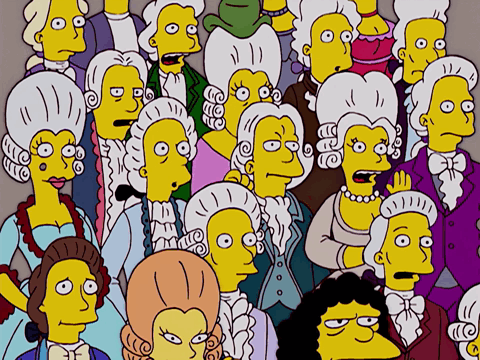
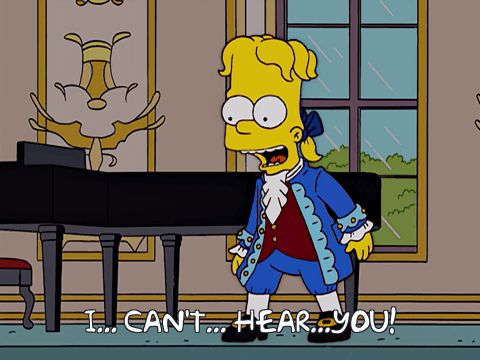

Funny thing is, this is surprisingly accurate.
And by that I mean: The Kingdom of Back by Marie Lu!
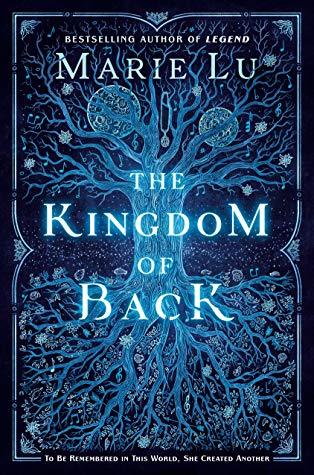
You don’t have to be a music fan to know the name Wolfgang Amadeus Mozart. In fact, you probably have no idea what in the hell a Sonata in K K331 Third Movement even is until you hear it. Then you’ll know it immediately. In fact, you can know nothing about Mozart but still be familiar with many of his pieces. Maybe you had the misfortune to be forced to watch the movie Amadeus* in your German class (a movie that is probably not appropriate to show public high school students even if it’s dubbed in German) or have seen the 30 Rock parody episode where, instead of writing music, they create a porn video game. My point is: you know Mozart. Everyone knows Mozart, especially kids who were made to learn piano. Or, in my case, piano AND violin**. The main reason for that is, well, public domain, but also because Mozart is the shit.

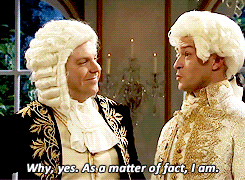

I mean, I’m more of a Beethoven girl myself, and I have a lot of love for the 19th century Russians (Tchaikovsky and The Five FTW!), but, seriously, if you learn anything about music, you learn about Mozart. And, as someone semi-fluent in German, who has dedicated most of her life to learning German, you have no choice but to learn about the greats of German music. Yes, Austrians count as part of German music. As I’ve mentioned before, there was no “Germany” until 1871, and I’m including any and all native German speakers as part of German music. Austrians speak German. Kind of. I mean, 99.9% of my German teachers were either from southern Germany or Austria, so I may have a bit of a bias...though my main bias is against Swiss German which literally is not German stop calling it that, Switzerland!
What were we talking about?
Oh. Yeah. Mozart.
You know he had a sister, right? One who was a musical prodigy in her own right, who used to play for the courts of Europe alongside her little brother, right?
No?
Yeah, you probably don’t. Because back in the 18th century, women weren’t allowed to be composers or musical prodigies. Once they grew up, they got married, had children and were subsequently erased from history while the men in their family achieve immortality.
Meet Maria Anna Mozart, known by her family as Nannerl.
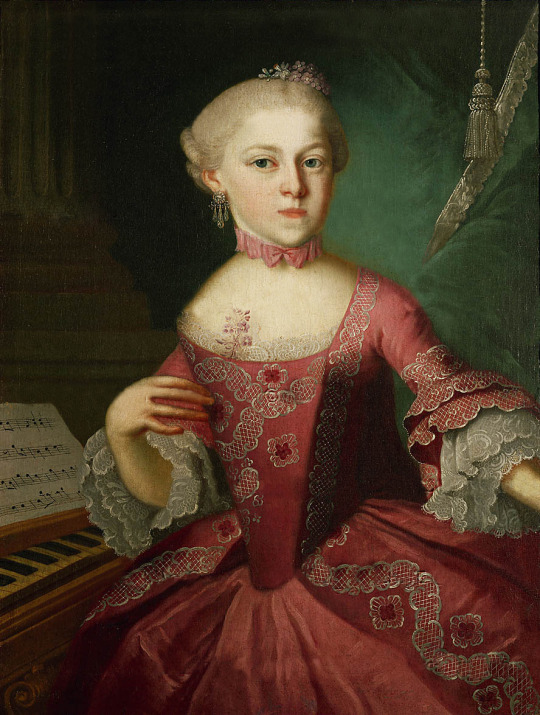
The Kingdom of Back is Nannerl’s story.
Salzburg! 1759! Nannerl Mozart is only eight, but is desperate to please her father and prove her mettle as a musician. The Mozart family is in a perpetual state of one-missed-paycheck-away-from-homelessness, and Nannerl’s stage dad, Leopold, hopes to cash in on the whole child prodigy thing. Unfortunately, Nannerl’s first demonstration for a court musician goes wrong when she’s distracted by her baby brother, Wolferl. That night, Nannerl dreams of a beautiful kingdom full of music, and of a beautiful boy with glowing blue eyes.
As she gets older, Nannerl is as shocked as her parents when Lil Wolferl shows a knack for music. She’s horrified to discover that she feels jealous of her baby brother, who idolizes her. One night, Nannerl and Wolferl are woken up by a strange light coming from their music room. When they investigate, they find the beautiful boy from Nannerl’s dream, in the flesh. He steals Nannerl’s music notebook then promptly jumps out the window.
Like so:

Complete with broken glass.
Anyway, the next time Nannerl sees the boy, she’s out in Salzburg with her brother on a shopping trip when she opens the door to a shop’s storage room, only to find it leads to the magical kingdom she’d seen in her dream. The boy, Hyacinth, wants Nannerl’s help to reclaim his throne. In exchange, he will make sure Nannerl gets her greatest wish: to be remembered forever.
Shortly after, Nannerl and Wolferl are called to Vienna to play for the Emperor and Empress. Wolferl puts on quite the show, charming everyone in the room and even proposing to the Emperor and Empress’s youngest daughter. It’s after this that Nannerl and Wolferl’s parents decide to take them on a massive tour of Europe. In the long, dull carriage rides between destinations, Nannerl and Wolferl come up with a name and origin story for Hyacinth and the magical kingdom that they saw: The Kingdom of Back. As the tour continues and Wolfer’s fame rises, Nannerl worries more and more about being forgotten - that her fate is sealed: she will never be a composer and a musician, instead she will become a wife and mother and nothing more than a footnote in history.
But the Kingdom of Back is more than just a fantasy story shared between two bored kids. Hyacinth’s magic has an effect on our world, causing calamities and illness. As Nannerl struggles to cope with her conflicting emotions, Hyacinth starts to seem less like a fairy prince and more like something sinister. But his promises of fame and immortality to Nannerl are so very, very tempting. I mean, wouldn’t you be a little jealous if your baby brother was an 18th century child rockstar?
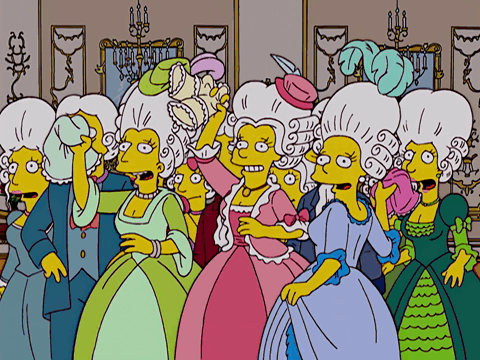
(Ok, the throwing of underthings may not have happened to Mozart, but it definitely happened to Liszt so that episode of the Simpsons isn’t entirely inaccurate).
If you come into The Kingdom of Back expecting it to be something like Marie Lu’s other novels - namely, action packed sci-fi/fantasy serieses - you are bound to be disappointed. The Kingdom of Back is unlike all of Lu’s other novels - it is a standalone historical fantasy dedicated to someone who, in spite of her talent, was relegated to the dustbin of history just because she was a girl. I adore Marie Lu’s books (the Legend trilogy is probably one of the best YA trilogies ever - if you haven’t read it, stop everything and do that now, please) and I’m also a fan of music, 18th century Germans, and 18th century German musical composers so I wasn’t at all put off knowing that The Kingdom of Back wasn’t going to be like her other books. It was more like “holy shit, Marie Lu is wrote a book about Mozart’s sister, put it in my brain immediately, please.” The Kingdom of Back is just wonderful, you guys. Lu beautifully captures what it’s like to have a sibling that you love, but also envy. Lu’s writing is lyrical and enchanting without crossing into purple prose territory. Music can be difficult to capture in prose, but Lu manages to do so without alienating the reader with too many weird technical musical terms that would be off putting to the average reader (hi!). The way time works in the book is weird - you’re never quite sure when you are at any given time or how old anyone else, unless you have the timeline of the Mozart children’s grand tour open while you read. Months can go by in a single sentence which can be a bit jarring, but the book manages to condense a decade into 300 pages. I’d rather have 300 pages and a few pacing issues than way too much detail within 900 pages.
My absolute favorite aspect of this book is Nannerl herself. Nannerl, as an 18th century girl, is bound by 18th century constraints - she’s not allowed to compose openly, as herself. She’s not allowed to talk back. She’s expected to look after her brother, as her position as older sister makes her mom-in-training. Nannerl is a good and proper 18th century lady, and she hates it. She hates the limits placed on her by society, but at the same time, she’s desperate to please her parents and earn their praise. Because what else can she do? It’s the shit situation women have experienced since time immaterial: conform, or else. Nannerl may seem meek and submissive compared to the likes of June from Legend or Emika from Warcross, but make no mistake, she is just as strong as they are. Her strength lies in her quiet resilience. Nannerl can’t exactly fight back against the system the way June and Emika do, so she rebels in other, quieter ways. She maintains eye contact for her father, waiting for him to break first or stays quiet when she’s expected to voice her praises. She creates a whole fantasy world in which to take refuge. Nannerl’s way of fighting back is subtle because it has to be.
Unfortunately, it takes only a click of a Wikipedia link to know how Nannerl’s story ends. It is bittersweet and something that will definitely strike a chord (pun absolutely intended) with any girl or woman who reads The Kingdom of Back.
RECOMMENDED FOR: Any girl or woman who has ever seen her accomplishments ignored or passed over in favor of a man’s, anyone with a sibling they’re just a little bit jealous of, music fans, Mozart fans, Marie Lu fans, anyone in the mood for a gorgeously-written YA historical fantasy.
NOT RECOMMENDED FOR: Haydn aficionados, Leopold Mozart, children who were forced to learn piano, men’s rights activists, people who would mistake an 18th century girl’s quiet resilience for weakness.
RELEASE DATE: March 3, 2020 - hey, I promise cromulent reviews, not “on time” reviews or “reviews in advance of publication.”
RATING: 4/5
MOZART RATING:

BEETHOVEN FANS, WHEN ENCOUNTERED BY MOZART FANS:
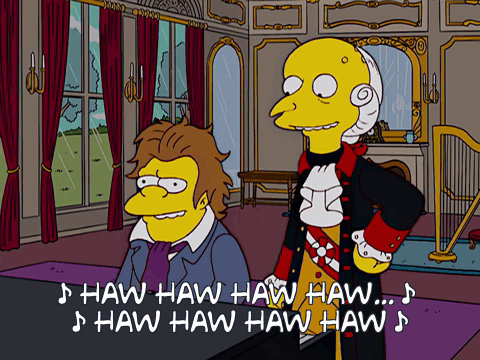
You can hear the 5th symphony with every haw.
*Please remember the movie Amadeus is also a historical fantasy - Salieri and Mozart were peers and were most likely friends, if not friendly. Also, Salieri had like, 8 kids and at least 1 mistress, he wasn’t some pious weirdo like he’s portrayed in the movie. I mean, he was Italian. F. Murray Abraham was awesome in it, though. My point is, don’t get your history from movies. It’s a bad idea.
Get it from Wikipedia, like a normal person.
That soundtrack, though. If you want an intro to Mozart’s music, that is a good way to go.
**Ahahahaha I was, then and now, and will forever remain, terrible at both.
#the kingdom of back#marie lu#nannerl mozart#wolfgang amadeus mozart#maria anna mozart#ya fiction#ya historical fiction#ya historical fantasy#sibling stories#hyacinth#salzburg#18th century#vienna#music#mozart#young adult fiction#book review#the magic flute#18th century composers#feminist ya#the simpsons#margical history tour#beethoven vs mozart
4 notes
·
View notes
Text
Arplis - News: Telling Stories in the Dark
This is a guest post from Elizabeth Brooks. Elizabeth grew up in Chester, England, studied Classics at Cambridge, and now lives on the Isle of Man with her husband and two children. Her debut novel, The Orphan of Salt Winds, was described by BuzzFeed as “evocative, gothic and utterly transportive.” Her second novel, The Whispering House will be published in the U.S. by Tin House on March 16th, 2021. You can find her on Twitter @ManxWriter.
Content Warning: Mental illness and suicide
My sister knew how to tell a story, and she had an appreciative audience in me. I can picture us now: my 7-year-old self, sitting up in bed, hugging my knees, while 10-year-old Rachel delivered her latest installment in a loud whisper from the adjacent attic bedroom. Sometimes excitement got the better of her, the whisper rose to a babble, and Mum or Dad called up the stairs, “You two! Go to sleep! Now!” For a few wriggly, resentful minutes we were silent, but when the coast seemed clear Rachel would resume, with caution.
When I think about those storytelling sessions now, the happiness and humour are still there, but they are complicated by the fact that Rachel died by suicide at the age of 28, having suffered years of mental illness.
I wish I could remember one of Rachel’s stories from beginning to end, but I’m left with a muddle of impressions, scraps of detail. I know she relished telling stories about spoiled, bullying girls, of a similar age to us, whose crimes escalated until they got their comeuppance, and that she liked to end each episode on a cliff-hanger, leaving me begging for more.
Rachel didn’t just make stories up, she also wrote them down. There were stacks of notebooks in her bedroom, crammed with novels at various stages of completion— children’s stories, family sagas, romances, diaries and poems.
I was two and a half years younger than Rachel, and I began writing out of a desire — half deferential, half competitive — to emulate her. It was a struggle to keep up. I rarely seemed able to complete a chapter, let alone a book. I kept waiting for a tidal wave of words and images to sweep me away, but it never did. Whilst I was fussing about how to detach page one without ruining the aesthetics of my new notebook, Rachel’s pen would be flying. She would be biting down on the tip of her tongue, her shoulders rigid with concentration, a cup of tea cooling at her side. One day she’d be a published author; I was sure of that. In as far as we were Little Women, she was Jo.
I wish there was a name for the condition that destroyed my sister, so that I could describe it in a single word and expect you to understand. It began in childhood and worsened through adolescence and adulthood. Depression was a part of it, but by no means the whole. Schizophrenia comes close, but isn’t quite right. Whatever it was, it made her hate and harm herself. It drove her to run away from home, cut her arms with razor blades and starve herself of food. Sometimes it had her in floods of tears, sometimes she could hardly move for the sheer, dragging weight of it. Medication was a matter of trial and error, and although there were pills that helped a little, others did more harm than good. Counselling was useful, but didn’t get to the heart of the problem. Nothing ever did.
As far as writing was concerned, as far as anything was concerned, Rachel was at the mercy of her illness. One day she might be manically, exhaustingly creative; another day she might be too numbed to lift a pen. There were also times — and it’s important I don’t forget this — when the clouds lifted and she was allowed to be herself, for a while.
One of Rachel’s less successful night-time stories strikes me as darkly comic, in retrospect. If that sounds heartless, it’s not meant to: mental illness has its absurdities, interwoven with its cruelties, and it would be dishonest to pretend otherwise. I forget how old she was at the time, perhaps 11 or 12? Rachel began with her main character waking up one morning, but rather than launch him headfirst into his story, she proceeded to describe everything — everything — he did, from the moment he swung his legs out of bed. “He found his slippers under the chair, and he put his left foot in the left slipper, and his right foot in the right slipper, and then he went over to the door and took his dressing-gown off the hook and put his left arm in the left sleeve…” I managed to bite my tongue until our man finally made it downstairs, only to discover that his dishwasher needed emptying. “So he opened the dishwasher and took a mug out and put it away in the cupboard, and then he went back to the dishwasher and took another mug out and took it to the cupboard…” At this point I snapped, and Rachel got upset, which made me even angrier. I told her she was being weird, and that her story was boring. In my defense, I was little, and Obsessive-Compulsive Disorder was not part of my vocabulary.
We grew up together, but as my life unfurled, Rachel’s contracted. The stages I passed through — school, university, marriage, children — were typical enough, but set alongside what she was going through they seemed extraordinary, to the point of unfair. She ought to have been doing these things too, or something equally good, not wasting away in psychiatric wards, or overdosing on anti-depressants, or running away from home in a futile effort to escape herself.
We both continued to write, but the further we got from childhood, the more difficult it became to show one another our work. I was too embarrassed to share my navel-gazing attempts at poetry, or bits and bobs of prose, and Rachel’s writings, too, grew ever more private. Whenever she was well enough to put pen to paper, she tended to write diaries rather than fiction, seeking relief from her distress by pouring everything onto the page. I believe that’s what she was doing, anyway: I didn’t read her notebooks then and I couldn’t bear to read them now.
Rachel died of an overdose in 2005. It was around the same time, when my children were tiny, that I began to write more seriously. It took me a long time to work out what I wanted to write about, and longer still to find an agent and publisher, but I did in the end. The sense of achievement was real, yet it was tinged, as all those other “ordinary” life events had been tinged, with guilt. The logical part of my brain knew I’d done nothing wrong, but there was a sub-logical part, which wasn’t — still isn’t — so sure. How come I’d fulfilled the dream that was Rachel’s, long before it was mine? Had there only been room for one Jo March in the family? Could I, with my greater resilience, be said to have ‘won’ over my more fragile and sensitive sister?
There’s no point getting hung up on such questions — and I don’t — but I’m conscious of them simmering away, out of sight. It’s because of Rachel that I became a writer in the first place, and it’s partly because of her that I settle on the subjects I do. All my novels concern the ways in which people, including ‘normal’ people, are essentially mysterious. I seem drawn to create characters whose vivid internal lives drive them to commit strange, often extreme, acts.
Storytelling is, in part, an attempt to shed light on darkness. When something seems impossible to understand, it is instinctive to stare hard into the chaos and search for patterns and structures there. A narrative framework may do nothing to alter life’s harsh realities, but it’s comforting to have one, all the same. When Rachel died, I felt numb. I could come up with no adequate response in the immediate aftermath; what had happened seemed so pointless and cruel. Fifteen years on, it still seems pointless and cruel, but writing has helped me to face it. I have never fictionalised my sister’s story, as such, but I have explored mental illness, the impact of suicide, and the complexities of sibling relationships. Putting these things into words, and shaping the words into stories, is healing.
Maybe Rachel’s stories — maybe mine, maybe everyone’s — are flashlights sweeping the darkness, making sense of a frightening world, albeit in brief, fragmentary glimpses. This makes me hope that my residual guilt really is misplaced. Perhaps becoming a writer was not, after all, a private ambition that divided us, but a joint quest that unites us still.
!doctype>
#OurReadingLives #GuestPost #Writing

Arplis - News
source https://arplis.com/blogs/news/telling-stories-in-the-dark
0 notes